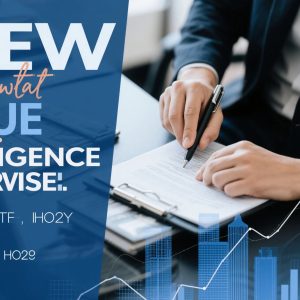The Evolving Landscape of Business Legal Compliance
Navigating the complex web of regulations has become increasingly challenging for U.S. companies as we approach 2025. The post-pandemic business environment, combined with rapid technological advancements and shifting political priorities, has created a perfect storm of new compliance obligations. Business legal compliance is no longer just about avoiding penalties—it’s become a strategic imperative that can impact everything from investor confidence to customer trust. Companies that proactively address these requirements position themselves for sustainable growth while minimizing legal exposure.
Recent changes in employment law, data privacy regulations, and environmental reporting requirements have left many organizations scrambling to update their policies. The most successful businesses are those that view compliance not as a burden but as an opportunity to strengthen operations and build competitive advantage. This shift in perspective is particularly important as regulators increase enforcement actions across multiple industries, with penalties reaching record levels in 2024 that are expected to climb even higher next year.
Understanding the interconnected nature of modern compliance is crucial. What might appear as a simple human resources policy change could have ripple effects on your corporate governance policy, contractual obligations, and risk management framework. The most forward-thinking companies are adopting holistic compliance strategies that integrate legal requirements into their core business processes rather than treating them as separate checkboxes to mark. This approach not only reduces compliance costs but also creates more resilient organizations better equipped to handle regulatory changes.
Foundations of Business Contract Law in the Digital Age
The fundamental principles of business contract law are being tested by emerging technologies and new business models. As companies increasingly rely on digital agreements, AI-assisted negotiations, and automated fulfillment systems, traditional contract frameworks require careful adaptation. The Uniform Electronic Transactions Act (UETA) and ESIGN Act provide foundational guidance, but courts continue to refine interpretations that businesses must monitor closely to ensure their agreements remain enforceable.
Smart contracts and blockchain-based agreements present particularly complex challenges for legal teams. While these technologies offer efficiency benefits, they also create novel questions about formation, modification, and dispute resolution that existing business contract law frameworks weren’t designed to address. Companies implementing these solutions must build additional safeguards into their standard processes and maintain parallel traditional documentation until the legal landscape becomes more settled.
Supply chain disruptions and economic volatility have made force majeure clauses and other contractual risk allocation provisions more important than ever. The lessons from recent global events have shown that boilerplate language often proves inadequate when unprecedented situations arise. Savvy businesses are conducting comprehensive reviews of their contract portfolios with particular attention to termination rights, liability limitations, and alternative performance scenarios that could become relevant in our increasingly unpredictable business environment.
Building an Effective Legal Risk Management Framework
Proactive legal risk management has transitioned from a theoretical concept to a operational necessity for businesses of all sizes. The most effective frameworks now incorporate continuous monitoring of regulatory changes, regular compliance training at all organizational levels, and embedded controls within business systems. This integrated approach helps identify potential issues before they escalate into costly legal problems while creating a culture of compliance throughout the organization.
Third-party risks represent one of the most significant and often overlooked exposures in modern business operations. From vendor relationships to joint ventures, companies are increasingly being held responsible for the compliance failures of their partners. Robust legal risk management programs now include thorough due diligence processes, ongoing monitoring mechanisms, and clear contractual protections for all business relationships. These measures are particularly critical in areas like data privacy, where regulators have shown little patience for companies that blame vendors for compliance failures.
The expansion of personal liability for corporate officers and directors has added urgency to legal risk prevention efforts. Across multiple regulatory domains—from environmental law to workplace safety—individual executives are facing increased scrutiny and potential personal consequences for organizational non-compliance. This trend makes comprehensive officer and director education, along with clear documentation of compliance efforts, essential components of any mature risk management program.

Corporate Governance Policy in an Era of Increased Scrutiny
Shareholder activism, ESG mandates, and regulatory reforms have dramatically raised the stakes for corporate governance policy development. The traditional annual review cycle for governance documents is no longer sufficient in today’s rapidly changing environment. Leading companies are implementing dynamic governance frameworks that can adapt to new requirements while maintaining the stability and predictability that investors and regulators expect.
Board composition and effectiveness have become focal points for both regulators and activist investors. Diversity requirements, independence standards, and expertise expectations continue to evolve, requiring careful attention to director recruitment and education processes. A well-structured corporate governance policy addresses these requirements while also establishing clear protocols for board evaluations, succession planning, and committee operations that can withstand scrutiny from multiple stakeholders.
Whistleblower protections and internal reporting mechanisms have taken on new importance following recent legislative changes and high-profile corporate scandals. Effective governance policies must now include robust confidential reporting channels, clear anti-retaliation provisions, and documented investigation procedures. These elements not only satisfy legal requirements but also contribute to organizational culture and early detection of potential compliance issues before they escalate.
Implementing a Comprehensive Legal Audit Checklist
A well-designed legal audit checklist serves as both a compliance tool and a strategic asset for modern businesses. The most effective checklists go beyond simple yes/no questions to incorporate risk assessments, control evaluations, and improvement roadmaps. Regular legal audits using these comprehensive tools can identify potential issues while there’s still time for corrective action, often preventing minor oversights from becoming major liabilities.
Employment practices should feature prominently in any thorough legal audit. With labor laws changing rapidly at federal, state, and local levels, companies need to regularly review their hiring practices, wage and hour compliance, leave policies, and workplace safety protocols. A detailed legal audit checklist for employment matters will help ensure all bases are covered while documenting the company’s good faith compliance efforts—a critical factor if disputes arise.
Intellectual property protection requires special attention in legal audits, particularly for businesses that have undergone digital transformation or expanded into new markets. Many companies discover too late that their trademarks aren’t properly registered in key jurisdictions or that their patent strategies haven’t kept pace with product developments. A comprehensive IP audit can identify these gaps while there’s still opportunity to strengthen protections for valuable intangible assets.
Data Privacy Compliance in 2025
The patchwork of U.S. data privacy laws continues to grow more complex, with several new state regulations taking effect in 2025. Companies that haven’t recently reviewed their data practices may be unaware of emerging requirements around consumer rights, data minimization, and algorithmic transparency. Comprehensive business legal compliance programs now need dedicated privacy components that address these evolving obligations while maintaining operational flexibility.
Children’s privacy protections have become a particular focus for regulators, with expanded COPPA requirements and new state laws imposing additional restrictions on data collection from minors. Businesses operating websites, apps, or online services must carefully evaluate their age verification processes, parental consent mechanisms, and data retention policies to avoid substantial penalties. These considerations should be integrated into both product development cycles and marketing strategies.
Cross-border data transfers remain a compliance challenge despite recent updates to international data transfer mechanisms. The ongoing evolution of EU-US Data Privacy Framework requirements and varying international standards create complex compliance obligations for companies with global operations. Regular reviews of data transfer mechanisms and data processing agreements are essential to maintain lawful international data flows while minimizing legal exposure.
Workplace Compliance Requirements
The modern workplace presents a maze of overlapping federal, state, and local regulations that require careful navigation. From updated OSHA standards to evolving pay transparency laws, HR departments must maintain vigilant compliance monitoring systems. Effective legal risk management in this area involves not just policy creation but also training programs, documentation systems, and regular compliance audits to verify actual practices match written standards.
Non-compete agreements and other restrictive covenants face increasing legal challenges across multiple jurisdictions. The FTC’s proposed nationwide ban on non-competes—while currently facing legal challenges—reflects a broader trend toward limiting these provisions. Companies relying on such agreements need to review their business contract law strategies and consider alternative approaches to protecting legitimate business interests while remaining compliant with changing regulations.
Remote work arrangements continue to create novel compliance challenges as companies navigate multi-state tax obligations, varying wage and hour laws, and differing workplace safety requirements. A comprehensive corporate governance policy for distributed workforces should address these issues while maintaining consistency in company culture and operational standards across all locations.
Industry-Specific Compliance Considerations
While all businesses face core compliance requirements, industry-specific regulations often present the most complex challenges. Healthcare providers, financial institutions, and government contractors must navigate particularly dense regulatory environments where non-compliance can result in severe penalties or even exclusion from essential markets. A tailored legal audit checklist that addresses these specialized requirements is essential for companies in highly regulated sectors.
Environmental, Social, and Governance (ESG) reporting requirements continue to expand across industries, with new SEC climate disclosure rules expected to take effect in 2025. Companies need to establish robust data collection systems and verification processes to meet these requirements while avoiding accusations of “greenwashing.” These efforts should be closely coordinated with overall corporate governance policy development to ensure consistent messaging to all stakeholders.
Cybersecurity regulations have moved beyond the financial sector to affect businesses across the economy. New SEC rules on cybersecurity incident reporting and risk management, along with expanding state data security laws, require companies to formalize their cyber governance structures. These requirements should be integrated with existing compliance frameworks rather than treated as separate obligations to avoid duplication of effort and potential gaps in coverage.
Preparing for 2025 Compliance Challenges
As businesses prepare for the coming year, proactive compliance planning has never been more important. The most successful organizations are those that view business legal compliance as an ongoing process rather than an annual exercise. By establishing continuous monitoring systems, investing in employee education, and maintaining open communication with regulators, companies can stay ahead of requirements rather than scrambling to catch up after changes take effect.
Technology solutions are playing an increasingly important role in modern compliance programs. From AI-assisted regulatory change monitoring to blockchain-based documentation systems, innovative tools can help businesses manage growing compliance burdens more efficiently. However, these solutions must be carefully implemented with appropriate human oversight to ensure they actually meet legal requirements rather than creating new risks.
Building relationships with regulators and industry groups can provide valuable early insights into coming changes while demonstrating good faith compliance efforts. Many regulatory agencies now offer compliance assistance programs and preliminary guidance options that can help businesses navigate complex requirements before they become mandatory. These proactive engagement strategies often pay dividends when questions or issues arise during examinations or audits.





